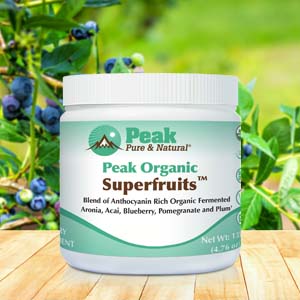To drink or not to drink? That’s been the question for years now…
Some studies have indicated that drinking certain types of alcohol, like red wine, in moderation, contributes to a healthy mouth and gut microbiome and reduces risks for heart disease, diabetes, Alzheimer’s disease and prostate cancer.
On the other hand, consuming even small amounts of alcohol has been linked with numerous serious health risks, including many of the same illnesses you just read could be reduced by moderate drinking.
Then there are the studies and anecdotal evidence that has linked alcohol to longevity — like the story of a French nun, Sister André, a supercentenarian who lived almost to her 119th birthday. Her caregivers claim she enjoyed a glass of red wine daily.
So, what is the truth? A team of researchers tried to find out — and the news isn’t good for those who enjoy their cocktails…
Flawed comparisons
Over the years, many studies have suggested moderate drinkers enjoy longer lives than those who abstain from alcohol.
The problem is many of those studies suffer from fundamental design flaws, says Dr. Tim Stockwell, a scientist with the Canadian Institute for Substance Use Research at the University of Victoria.
One major issue is those studies have generally focused on older adults and have not accounted for people’s lifetime drinking habits. The studies compared moderate drinkers with groups that either abstained or drank only occasionally.
Those groups also included some older adults who had quit or cut down on drinking because they had developed health conditions that forced them to do so.
“That makes people who continue to drink look much healthier by comparison,” Stockwell says.
For their analysis, Stockwell and his colleagues singled out 107 published studies that followed people over time and examined the relationship between drinking habits and longevity.
When they combined all the data, it appeared that light to moderate drinkers (those who drank between one drink per week and two per day) had a 14 percent lower risk of dying during the study period compared with those who didn’t drink alcohol at all.
But when they dug deeper, they found a handful of higher quality studies that included people who were younger than 55, on average, at the outset of the study and that made sure former and occasional drinkers were not considered abstainers.
In the higher-quality studies, drinking alcohol was not connected to a longer life.
Stockwell notes that the image of alcohol as a health tonic is embedded in the public imagination, citing the “French paradox” as one example. The French paradox is the idea that red wine consumption offsets the rich, fatty diet of the French and explains their relatively low rates of heart disease.
The reality, he says, is that moderate drinking likely does not extend people’s lives and in fact can be hazardous to our health.
“There is simply no completely ‘safe’ level of drinking,” Stockwell says.
But what about the resveratrol in red wine?
The reason red wine often got a pass was because it contains resveratrol, the plant compound plentiful in the skins of red grapes responsible for launching decades of longevity and anti-aging research.
So if you have to give up that nightly glass of red wine, how else can you get resveratrol? Try a high-quality supplement or consume plenty of these other foods that contain it:
There are other nutrients that tied to longevity research, like nicotinamide mononucleotide (NMN). NMN, a metabolite formed when our bodies process niacin (vitamin B3), can be found in abundant quantities in broccoli. Since NMN is derived from niacin, it’s important to get plenty of niacin-rich foods in your diet, including:
- Liver
- Salmon
- Turkey and white meat chicken
- Peanuts
- Avocado
- Brown rice
- Whole wheat products
- Mushrooms
- Fortified and enriched cereals and bread
Then there is pyrroloquinoline quinone (PQQ), a powerful antioxidant considered a “longevity” nutrient because it lowers the risk of age-related disease. It does so by improving the function of the mitochondria, the so-called powerhouses of the body. PQQ can be found in supplements and the following foods:
- Kiwi
- Green peppers
- Parsley
- Papaya
- Spinach
- Celery
- Tofu
- Organ meats like kidney and liver
Sources:
The research was wrong: study shows moderate drinking won’t lengthen your life — EurekAlert!
Why Do Only Some Cohort Studies Find Health Benefits From Low-Volume Alcohol Use? A Systematic Review and Meta-Analysis of Study Characteristics That May Bias Mortality Risk Estimates — Journal of Studies on Alcohol and Drugs
Read full article here




